Candidates for Election to the Faculty Newsletter Editorial Board
For more than 35 years, the MIT Faculty Newsletter has served as an independent platform representing the voices and perspectives of MIT faculty across all five Schools of the Institute. Since its founding, the Newsletter has been maintained by a volunteer editorial board, with over 65 faculty members having contributed their time, insight, and commitment to this effort over the decades.
Since 2008, the editorial board has followed a formal nomination and election process – ensuring transparency, inclusivity, and broad faculty representation. Board members are elected through a direct, electronic vote by an electorate that includes the full faculty: Professors of all ranks, including Professors of the Practice and Professors Emerita and Emeritus.
This year, we are following the same procedure to fill five open positions on the editorial board. The Nomination Committee reached out to 71 faculty colleagues from across the Institute, and from this effort a slate of eight candidates was established. We are deeply grateful to everyone who considered serving – whether this year or in the future – for their willingness to support the ongoing work of the Newsletter.
We hope you will support the independent voice of the Faculty Newsletter by casting your ballot among the following candidates when the email link is sent you later this spring for this year’s election.
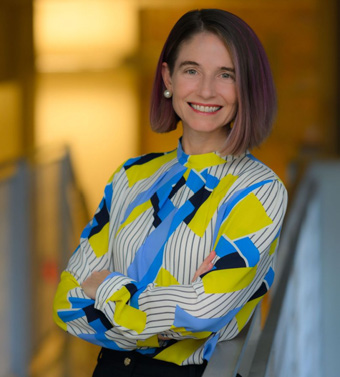
Catherine D’Ignazio
https://dusp.mit.edu/people/catherine-dignazio
At an institute that spans many schools, departments, disciplines and buildings, the Faculty Newsletter brings us together to engage, debate, disagree, and take action on the important issues of our time. There is no shortage of such issues at the moment – higher education in the US is facing an unprecedented set of attacks and academic freedom is increasingly on the line. The FNL is an essential civic forum for us to navigate this moment together, and I will work to preserve its independence as well as ensure that it is open to a wide range of perspectives. To this role, I bring a longstanding interest in democracy, inequality and public interest technology. I am the author of two award-winning books and numerous articles on feminist data science. My lab builds AI tools for civil society organizations to defend human rights. At MIT, I have joined two faculty groups working on academic freedom: AAUP and MITCAF. I remain convinced that democracy works and communities are stronger when we can build healthy spaces of listening, discussion, dissent and debate. This is what I will work for on the board of the FNL.
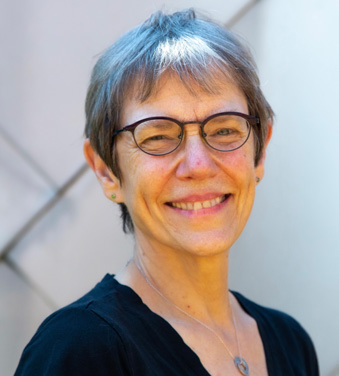
Sally Haslanger (current editorial board member) http://sallyhaslanger.weebly.com/
I am Ford Professor of Philosophy in the Department of Linguistics and Philosophy. I am also an affiliate in Women’s and Gender Studies and MIT D-Lab. Broadly speaking, my work links issues of social justice with contemporary work in epistemology, metaphysics, and philosophy of language and mind. Recently I have been working on social structural explanation with an emphasis on the materiality of social practices and the role of ideology in shaping social subjects. This has led me to explore complexity theory as a tool to model social systems and social transformation. My work has been widely reprinted and translated into French, Spanish, German, Basque, Turkish, Chinese, Japanese, and Korean. I served as President of the American Philosophical Association Eastern Division 2013-14 and was elected member of the American Academy of Arts and Sciences (AAAS) in 2015. I currently serve as Assistant Secretary of Membership for the AAAS. I was awarded an ACLS Fellowship in 2002 and a Guggenheim in 2018-19. In 2024, I received an Honorary Doctorate (Doctor Philosophiae Honoris Causa) from the University of Oslo, Norway and the APA’s Quinn Prize. I am currently the president of MIT’s AAUP Chapter. It is essential that the faculty have a strong voice in determining the future of MIT. For nearly forty years, the MIT Faculty Newsletter has been an important source of information, debate, and critique and must continue to call attention to the challenges and opportunities we face. It is our responsibility, as a faculty, to lead MIT, and in order to do so, we must have open and engaged discussion. Having served on the FNL Editorial Board for several years, I am vividly aware of some of the challenges we face as a publication and am keen to work with others to respond constructively to the Silbey Report and input from the faculty as a whole.
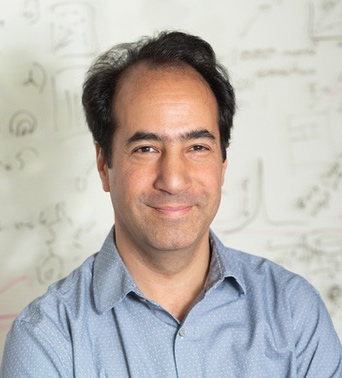
Alan Jasanoff
https://jasanofflab.mit.edu/
I am a bioengineer and neuroscientist with primary interest in studying biological bases of behavior and cognition. I am also a deep believer in the importance of communication across academic boundaries, particularly as a means for promoting understanding of consequential but complex topics. As a first-generation scientist but third-generation scholar (for better or worse), I am used to speaking with colleagues from a wide range of backgrounds, and I have formal experience with cross-disciplinary communication through longstanding membership on the MIT Press Editorial Board and via my own work, which includes authorship of a public-facing book and articles in multiple fields. Complementing this, I have served for the past six years on the MIT Faculty Policy Committee, giving me a close perspective on some of the Institute’s most pressing problems. As a member of the FNL Editorial Board, I would advocate for three principal objectives: (1) rigorous editorial practices; (2) inclusion of content that engages a broad readership; and (3) consistent focus on issues most relevant to MIT’s community and mission. I am also extremely interested in ways that the FNL could help catalyze productive responses to the current crisis in national support for academia and research.
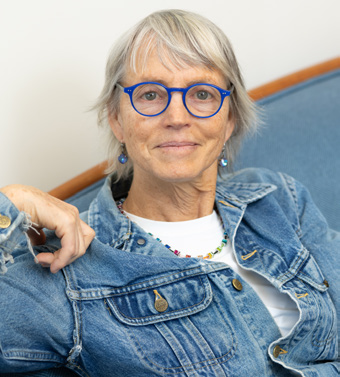
Nancy Kanwisher
https://mcgovern.mit.edu/profile/nancy-kanwisher/
I am a professor of cognitive neuroscience in the Department of Brain & Cognitive Sciences and an investigator in the McGovern Institute for Brain Research. I arrived at MIT as an undergrad in 1977 and have been here most of the time since. I am not quite a lifer though. After completing my Ph.D. under the brilliant mentorship of Molly Potter, I did postdocs at Columbia and Berkeley, and taught at UCLA and Harvard before returning to MIT in the mid 90s. Though I have taken MIT to task for many things over the years, and proudly wore an IHTFP T-shirt as an undergrad, there is no place in the world I would rather be. I still have to pinch myself to believe the astonishing privilege of getting to discover new things about the human brain, and to work with brilliant MIT students and faculty. Although I have never myself published anything in the FNL, I value its role as a venue for open discussion of topics of importance to our faculty, and for the expression of opinions, especially when they are unpopular.
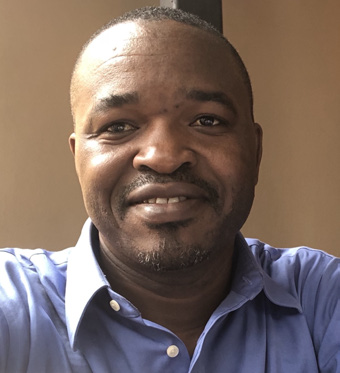
Chakanetsa Mavhunga
https://sts-program.mit.edu/people/sts-faculty/c-clapperton-mavhunga/
Professor Chakanetsa Mavhunga is a tenured Professor of Science, Technology & Society at Massachusetts Institute of Technology (MIT). He is the founder and series editor of the MIT Press Global South Cosmologies and Epistemologies Book Series. His latest book, Dare to Invent the Future: Knowledge in the Service of and through Problem-solving, is a manifesto for a knowledge and education for and through problem-solving, deeply respectful of local context. Prof. Mavhunga jointly founded and now co-directs the Practical Field Lab, an experiential leading curriculum hosted in Origin Labs, Dedan Kimathi University of Technology, Kenya. He is currently serving a three-year term on the UNESCO Commission on the Ethics of Scientific Knowledge and Technology (COMEST), tasked with formulating ethical principles of quantum computing and space exploration and exploitation, building on previous work on emerging technologies, including artificial intelligence, robotics and the Internet of Things (IoT), water, land-use and climate engineering. Prof. Mavhunga would bring to FNL a global and policy perspective, with Africa in particular and the Global South in general, so that the FNL not only puts developments, analysis, and commentary within the wider global and planetary perspective. The current moment in particular – from immigration to tariffs to USAID to NATO – affords FNL the opportunity to engage faculty in shaping opinion and policy for a better world.
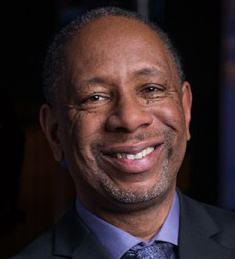
Ceasar McDowell (current editorial board member)
https://dusp.mit.edu/people/ceasar-mcdowell
I am the Professor of the Practice of Civic Design in the Department of Urban Studies and Planning, the Principal Investigator of OpenDoc Lab, and a former Associate Director of the Center for Constructive Communication. Additionally, I served as Associate Department Head at DUSP. With over 25 years of experience at MIT, I have been involved in numerous committees and working groups for DUSP, SA&P, and the Institute.
Ten years ago, I joined the editorial board of the Faculty Newsletter (FNL) and am currently in my first year of a two-year term as co-chair. Throughout my tenure, I have been dedicated to strengthening the independent faculty voice at MIT, which is crucial for faculty members with limited opportunities to be heard across the Institute.
Over the next year, the FNL will undergo a series of changes to improve its operations and encourage opinions and viewpoints from across the Institute, while ensuring it maintains its commitment to underheard voices.
I am committed to using my professional skills in process management, my dedication to the values of the FNL, and leadership to facilitate the board through these challenging changes. I look forward to working with the board to ensure that the Faculty Newsletter remains a strong and effective advocate for the MIT faculty.
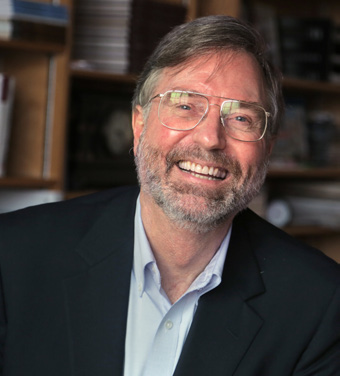
Warren Seering (current editorial board member)
https://meche.mit.edu/people/faculty/Seering@MIT.edu
I believe that at its best the Institute operates well because those deciding what should be done become informed and then employ exceptional reasoning skills to the processes of making decisions and executing plans. I see the Faculty Newsletter as an enabler of informed decision making. We as an Institute are in the process of reconfiguring, particularly with regard to computing, our physical plant, Kendall Square, the student experience, and the choices that we make in engaging the world. If reelected, I will continue to work toward configuring the Newsletter to be a venue in which all faculty points of view are welcome and represented.
My research and teaching interests are in engineering design and product development, particularly in understanding the processes by which organizations produce complex products and systems. A personal interest has been study of the career paths of our students and of the professional knowledge and skills that they employ.
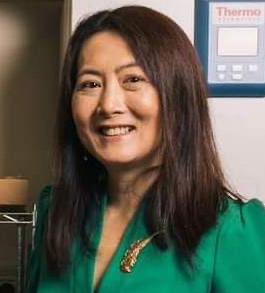
Yang Shao-Horn
https://dmse.mit.edu/people/faculty/yang-shao-horn/
I am Professor of Chemistry, Materials Science and Engineering and Mechanical Engineering. I created/taught electrochemical courses cross-listed at MIT and have advised 150+ students and postdocs at MIT who are now pursuing successful careers in academia (50+), national labs and industry. Our work blends chemistry, physics, materials and engineering to answer both fundamental and applied problems, and has had a transformative impact in electrochemical energy storage, catalysis, and sustainable chemicals/fuels as well as international energy research and policy.
I am driven by a deep commitment to strengthening the independent faculty voice at MIT, advocating for increased institutional support, fostering nurturing relationships across our academic community. As MIT continues to evolve in response to global challenges and opportunities, faculty members face mounting demands that require dedicated institutional support. If elected to the Faculty Newsletter Editorial Board, I will prioritize identifying both urgent and emerging needs that affect faculty resources and well-being across departments and disciplines. With the changing landscape of higher education, we need to remain vigilant in addressing opportunities from research funding gaps, administrative burdens, intellectual pursuit and freedom, student/postdoc advising and work-life balance concerns.


